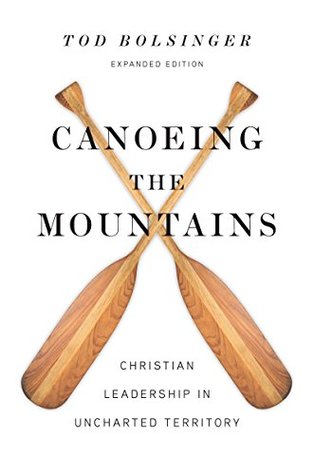More on this book
Community
Kindle Notes & Highlights
Read between
April 27 - April 27, 2018
True change of heart, true transformation, is so profoundly challenging because “the sustainability of change depends on having the people with the problem internalize the change itself.”
When we think of structures, we tend to think institutionally, but what Heifetz and his colleagues refer to often as a “holding environment” or “containing vessel” is far more an expression of relationships than a formal configuration of policies, procedures and rules. “A holding environment consists of all those ties that bind people together and enable them to maintain their collective focus on what they are trying to do. All the human sources of cohesion.”11
Lewis and Clark used their deep friendship, built on shared, meaningful, purposeful work, to build the Corps into a family.
The family then became even more effective for the sake of their mission. When they most needed it—when going off the map into the depths of the
For Christians who have answered the call to follow the Master who also calls us friends (John 15:15) and gives us to each other as brothers and sisters (John 19:26-27), this relational congruence is even more critical. For the mission of Jesus entrusted to his followers (John 20:21) is expressed to the world through the love that the disciples have for each other (John 13:34-35).
it is crucial to remember again that the
In my work with TAG Consulting, Kevin Graham Ford and I developed an alignment diagram that we use to enable our clients to see the gaps between
In contrast, a healthy culture is aligned, cohesive and clear.12 A healthy culture is one where there is “minimal politics and confusion, high degrees of morale and productivity, and very low turnover among good employees.”
We protect what we cherish. Love drives us to hold on to what is dear and cling to what gives us meaning and life. But it is also because of love that we are willing to change. It is a great paradox that love is not only the key to establishing and maintaining a healthy culture but is also the critical ingredient for changing a culture.
How do we change the culture of a church? What if the default way of functioning is one of self-preservation? What if the behaviors of the leaders have created a culture of entitlement rather than discipleship? What if the church culture is focused on preserving American Christendom or worse? When the church’s default behavior, way of functioning, its organizational DNA is now hindering the very thing that must be done to fulfill the mission God has given us, how do we change it? And if “culture eats strategy for breakfast,” then how do we change the culture before we are eaten alive?


